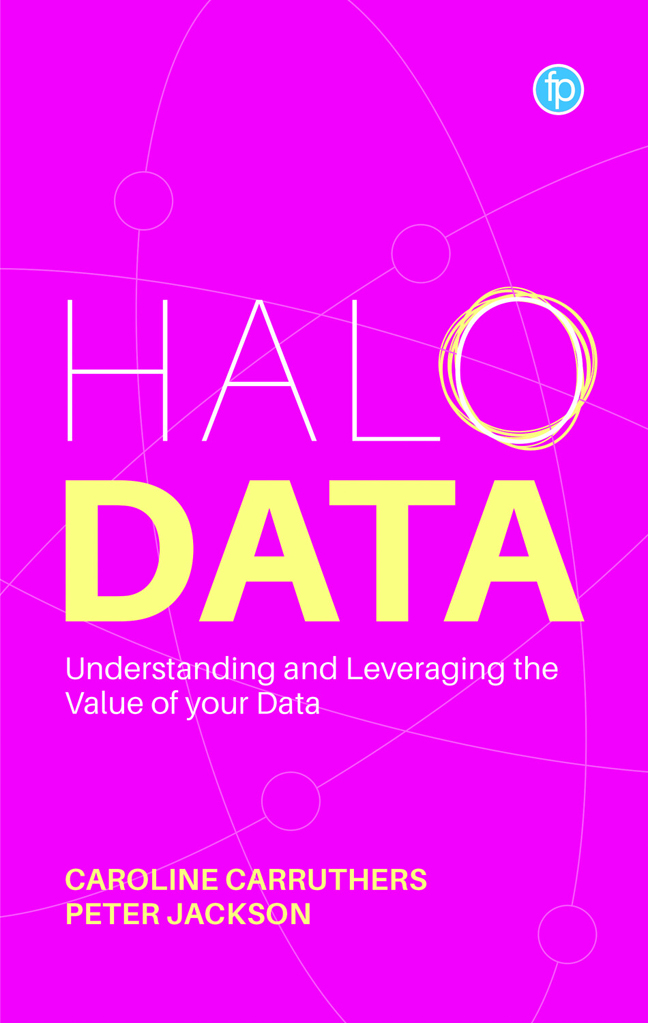Book contents
- Frontmatter
- Dedication
- Contents
- Figures and Tables
- About the Authors
- Acknowledgements
- Introduction
- 1 Who Owns the Definitions and Terms about Data?
- 2 What is Metadata?
- 3 Other Ideas of Data Value and Monetisation
- 4 Value from a Different Source
- 5 Hello Halo Data
- 6 Getting to Know Halo Data
- 7 Early Examples of Halo Data Approaches
- 8 Halo Data and Data Ethics
- 9 Halo Data Framework
- 10 Halo Data Applied Risk Assessment, Regulation, Customer, the Citizen
- 11 Halo Data and Storytelling
- Conclusion
- Index
8 - Halo Data and Data Ethics
Published online by Cambridge University Press: 17 December 2023
- Frontmatter
- Dedication
- Contents
- Figures and Tables
- About the Authors
- Acknowledgements
- Introduction
- 1 Who Owns the Definitions and Terms about Data?
- 2 What is Metadata?
- 3 Other Ideas of Data Value and Monetisation
- 4 Value from a Different Source
- 5 Hello Halo Data
- 6 Getting to Know Halo Data
- 7 Early Examples of Halo Data Approaches
- 8 Halo Data and Data Ethics
- 9 Halo Data Framework
- 10 Halo Data Applied Risk Assessment, Regulation, Customer, the Citizen
- 11 Halo Data and Storytelling
- Conclusion
- Index
Summary
What are data ethics?
There is much chatter about personal data and the accompanying legislation that is in place to protect both it and us. Whether that is the European General Data Protection Regulation (GDPR); the Data Protection Act 2018 (UK); Canada's Digital Charter Implementation Act; or Japan's Act on Protection of Personal Information, our governments are taking the protection of our personal data seriously, and this can only be a good thing. While the USA doesn't have a data privacy law applicable to every American state, each state does have its own law, such as the California Consumer Act (CCPA) – which is important, as California has a larger population and annual GDP than a good number of countries. The USA also has data protection provisions in the Health Insurance Portability and Accountability Act of 1996.
This type of legislation isn't new, and regulations about how we could use personal data predate all of the above examples; however, we just weren't taking it seriously. It wasn't until the consequences and awareness of what was happening were raised that people seem to have woken up and decided that legislation regarding the collection, storage, processing and use of personal data needed to be taken seriously.
What many people don't realise is that this type of legislation only ever and should only ever act as a last line of defence. We should be choosing to do the right thing because it's the right thing, not because we will be penalised if we don’t.
This is where data ethics come in. There will be something of a circular discussion here, but it's important to understand the circle and why it exists.
There is (unfortunately) example after example of why we need data ethics – or as we like to put it, of when good data turns bad, as in the following:
• chatbots which have to be pulled from service after they start making racist comments based on biased data they have picked up;
• blindly following artificial intelligence (AI) decisions without understanding the implications or biases behind them;
• toys collecting data on our children. The consequences of these type of actions dictate the necessity for data ethics.
- Type
- Chapter
- Information
- Halo DataUnderstanding and Leveraging the Value of your Data, pp. 77 - 88Publisher: FacetPrint publication year: 2023

